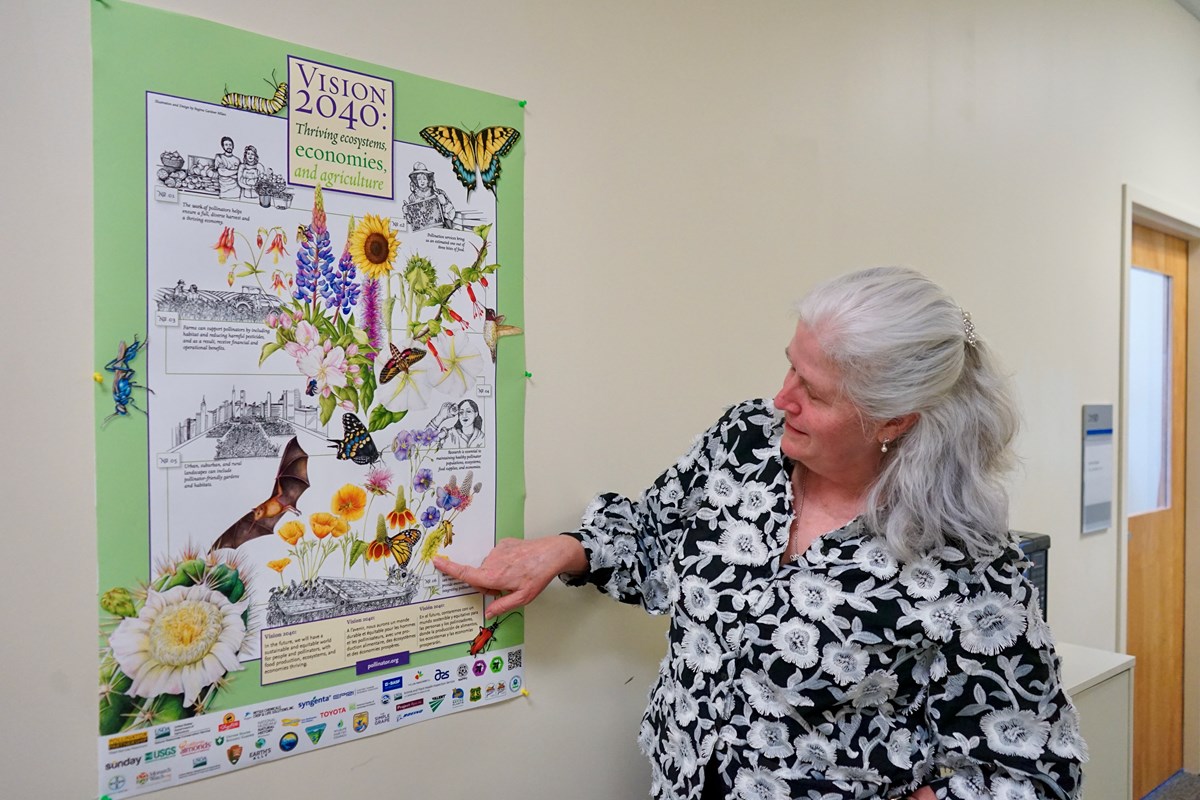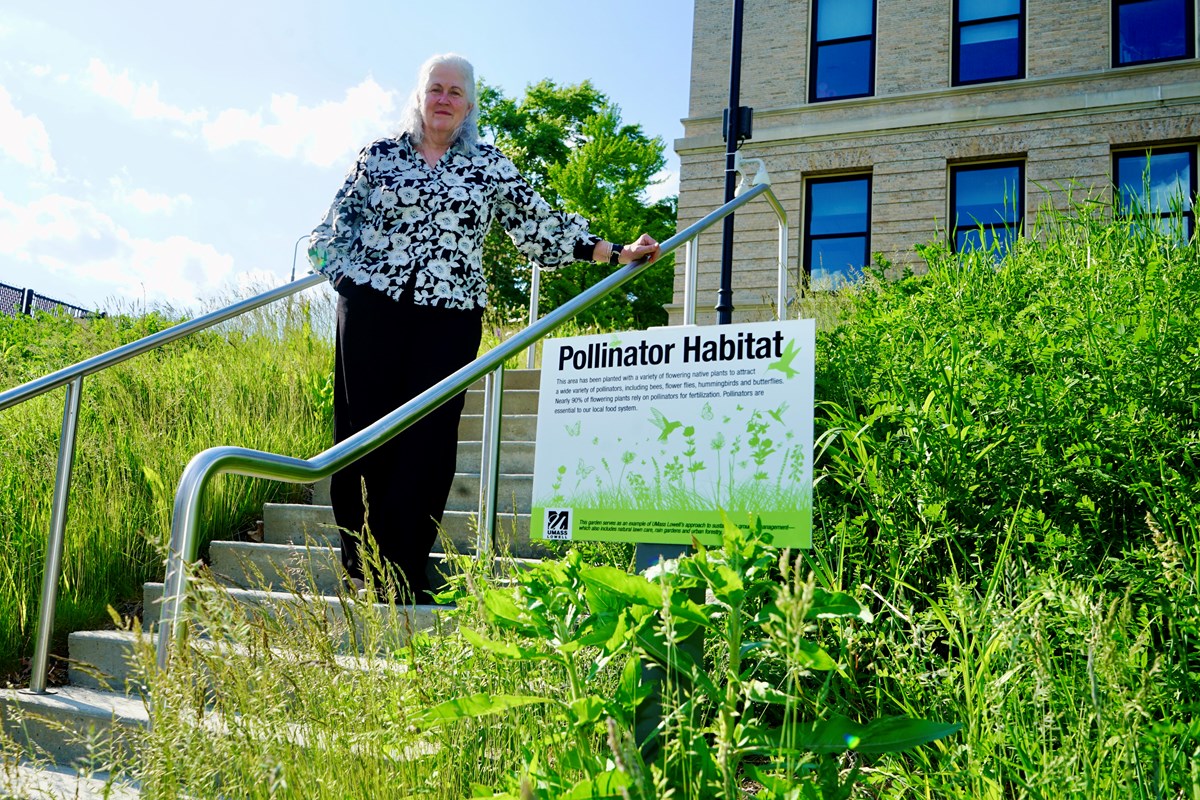Regina Milan Commissioned to Create Annual Poster for Nonprofit Pollinator Partnership
 Image by Ed Brennen
Image by Ed Brennen
Assoc. Teaching Prof. of Art & Design Regina Milan points out some of her favorite parts of the 2024 pollinator poster that she created for the nonprofit Pollinator Partnership organization.
05/31/2024
By Ed Brennen
In the center of the poster, a golden northern bumblebee collects pollen from a wild lupine, while a white-lined sphinx moth does the same from a McIntosh apple flower. Over on the right, an Anna’s hummingbird drinks nectar from a fuchsia-flowered gooseberry, while at the bottom, a Mexican long-tongued bat swoops toward a saguaro cactus.
Behind the watercolor paintings of pollinators and plants is a series of black and white drawings, among them a beekeeper, a researcher and an organic farmer standing next to a woman at a market. The woman is the poster’s creator, Assoc. Teaching Prof. of Art & Design Regina Milan, and the farmer is her son, Matthew.
“That was a fun Easter egg to sneak in there,” says Milan, who was commissioned to create the poster by the Pollinator Partnership, a nonprofit organization dedicated to promoting the health of pollinator habitats through conservation, education and research.
Since 2006, the group has put out calls to artists from around the world to create its annual poster. This year’s theme was “Vision 2040: Thriving Ecosystems, Economies and Agriculture.” Milan learned about the poster call at the Rhode Island School of Design, where she is taking a certificate program in natural science illustration. She submitted a proposal because “it’s a really good cause that I care about”; her proposal was accepted, and the final product is now available online for $30.
 Image by Ed Brennen
Image by Ed Brennen
As a member of UML's Climate Change Initiative, Regina Milan referenced the university's pollinator habitats and other sustainability initiatives in her poster proposal.
The project has “connected all the dots” of Milan’s career, drawing on her extensive background in both graphic design and botanical illustration, as well as her passion for gardening and sustainability.
“I tell students that you never know when all your skills will come together,” says Milan, who joined UML in 2011 and teaches courses in natural science illustration, graphic design and social media management. “For me, it’s pretty late in life for it to tie together, but it’s been so much fun.”
Raised in a family of 14 kids in Rockland, Massachusetts, Milan credits her parents for nurturing her early love of art and nature. She earned a B.F.A. in visual design and illustration from UMass Dartmouth and an M.F.A. in graphic design from Boston University. In 1988, she started her own graphic design firm, Milan Design.
 Image by courtesy
Image by courtesy
Regina Milan was able to include this "Easter egg" in her pollinator poster: a drawing of her and her son Matthew, who runs an organic farm on Cape Cod.
Milan has held solo exhibitions at the Arnold Arboretum of Harvard University and the Cape Cod Museum of Natural History, and in 2020, she illustrated the book “Plant Witchery” — artwork that she repurposed for her poster concept.
Milan relied on her graphic design expertise to navigate the poster’s complex “Vision 2040” theme, which had to include elements of not only ecosystems, but also economies and agriculture.
 Image by courtesy
Image by courtesy
Regina Milan's poster is available on the Pollinator Partnership website, with proceeds going to support the nonprofit organization.
Milan has had several of her classes work on projects with the university’s Rist Institute for Sustainability and Energy, which led her to become a member of the Climate Change Initiative. Thanks to those connections, she was able to talk about UML’s green roofs and pollinator gardens, as well as its status as a certified arboretum, in her poster proposal.
“The university has done a really good job educating people” about sustainability, says Milan, who has a pollinator garden and solar panels on her home in Brewster, Massachusetts.
To ensure the poster’s accuracy, Milan collaborated with scientists from the Smithsonian Institute and Rocky Mountain Biological Lab, who reviewed her work and provided feedback.
“This was an opportunity to meet people who are interested in things I’m interested in,” says Milan, who plans to sell prints of some of the individual artwork used in the poster, with half of the proceeds going to the Pollinator Partnership.
“I haven’t done a lot of big client projects in a while,” she adds. “This one was a dream.”
